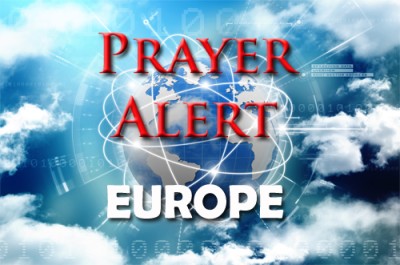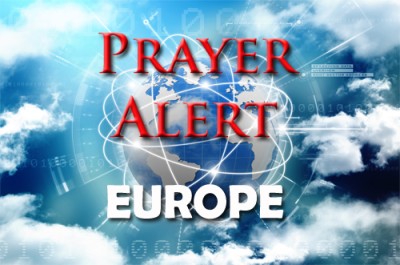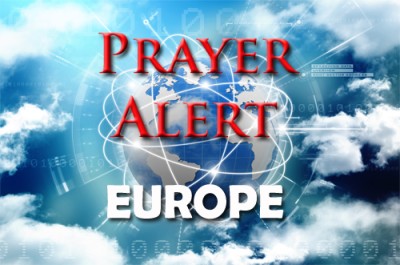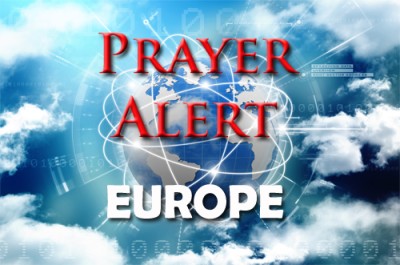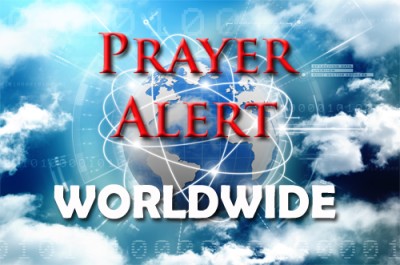Black blood donors urgently needed
07 Oct 2022The NHS needs more black blood donors to help people with sickle cell disease. The daily demand for donations to treat the blood disorder in England is 250, but only half of all hospital requests are being met with matched blood. Sickle cell mostly affects people of black heritage, and ethnically-matched blood gives the best treatment. The disease causes red blood cells to become sticky, blocking vessels and restricting oxygen supply, triggering excruciating pain. Sadeh needs all her blood replaced every four weeks. She says, ‘Some days I struggle getting out of bed due to pain in my limbs, some days I wake up feeling great, some days I wake up in hospital, connected to machines and told that days have passed. Transfusions have saved my life many times over’. The NHS has launched a Black History Month campaign, highlighting to black communities that they have the power to treat sickle cell with life-changing blood donations.
Railway staff paid more than market rate
07 Oct 2022Striking rail maintenance workers are already paid almost a fifth more than those doing comparative roles, the industry regulator has said. Independent consultants looked at total rewards, including pay, pension costs and other measurable benefits, of 64,000 railway workers. The analysis shed fresh light on the bitter industrial dispute which has led to rail strikes across the country. Workers demanding double-digit pay rises already receive salaries 18% higher than ‘market comparators’. Station staff salaries are 12% higher, and train drivers average £66,043 a year (the average UK salary is £31,876). Liz Truss is under growing pressure to follow through on her pledge to crack down on unions, amid fears that the rail network could shut down completely over Christmas. She had promised to bring in ‘tough and decisive action to limit trade unions’ ability to paralyse our economy’.
NHS and government targets
07 Oct 2022NHS bosses have told political parties not to impose any new targets on the beleaguered health service in their bid to win the next general election. They said the Conservatives and opposition parties should resist foisting new performance metrics on the NHS when it cannot deliver the hundreds it already operates under. The plea was made by hospitals, ambulance providers, mental health, community care and GP services in England, who said, ‘Given the NHS’s staff shortages, huge backlog of care and financial problems, the answer will not be found in politicians imposing oversimplified and unfunded targets that make convenient soundbites but have little bearing on reality and demoralise frontline workers.’
UK joins European Club of Nations
07 Oct 202244 European leaders gathered in Prague on 6 October for the first meeting of a new political community. Most of the countries already belong to other organisations including the EU, NATO, the Council of Europe (upholding human rights), and the Organisation for Security and Cooperation in Europe (arms control, freedom of the press, and free and fair elections). But the latter two are ineffective at reining in Russia. EU’s foreign policy chief spoke of building ‘a European political community without Putin’. Liz Truss will join EU and non-EU leaders plus Ukraine's Volodymyr Zelensky by video. She said the ‘club’ is not an alternative to the EU, but added that after Brexit the UK should be involved in discussions that affect the entire continent.
Finland: thousands of refugees
07 Oct 2022Flee, or face conscription: that is the choice that has led thousands of Russians to flee to Finland and other nations after Putin announced he is mobilising reservists. Finland will soon limit Russians’ entry on tourist visas; border crossings are up 80% from normal. Finland is largely Lutheran Christian. However, ‘Christian’ in Finland is often just a label, not a reflection of a vibrant, abiding relationship with Jesus. Pray that the opportunity for outreach in love to these new refugees in Finland will be a wakeup call, and for a new Holy Spirit flame to be lit. Pray for Finns leading comfortable lives to see their need of a Saviour.
Ukrainians who don’t flee
07 Oct 2022Not all Ukrainians desire to start a new life abroad. There are tens of thousands of Eastern Ukrainians in refugee camps, schools, kindergartens or government buildings, hoping they will be able to return home once the war is over. They refuse to think that there will be no homes to return to. These refugee camps are everywhere in Transcarpathia (in the far west of Ukraine) which, at the moment, is a place of safety. The Carpathian Mountains separate them from Putin’s bombs. Pray for the safety of the brave Europeans visiting refugee locations with food, clothes and household needs.
Russia: Putin ridiculed by powerful allies
07 Oct 2022The withdrawal of Russian troops from important Ukraine towns has prompted two powerful Putin allies publicly to ridicule the war machine's top brass. Chechnya leader Ramzan Kadyrov said, ‘Nepotism in the army will lead to no good. The commander of Russian forces should be stripped of his medals and sent to the front line with a gun to wash away his shame with blood.’ Such public contempt for those running Russia's war indicates the growing level of frustration among Putin’s elite with his war tactics. The powerful mercenary Yevgeny Prigozhin congratulated Ramzan’s comments, saying, ‘Ramzan - you rock man! All these ******** should be sent barefoot to the front with automatic guns.’
Thailand: 23 children killed
07 Oct 2022Duangphan Patphaothanun is wandering outside a childcare centre, clutching a bag full of toys. She wants to know when she can see her grandson, so she can place his most treasured possessions with him in his coffin. Three-year-old Pattarawut is among the 23 children who died on 6 October in an attack at the centre, in the north-east of Thailand. Panya Kamrab, a former policeman, killed at least 37 people, including his wife and stepson, before killing himself after a manhunt. His stepson used to attend the centre but had not been there for a month. The motive for the attack is not yet known, but police said Kamrab was fired from his job in June for drug use. More than 90 children usually attend the centre, but because of poor weather and a bus breakdown only 24 of them were there on Thursday. Only one child has survived.



